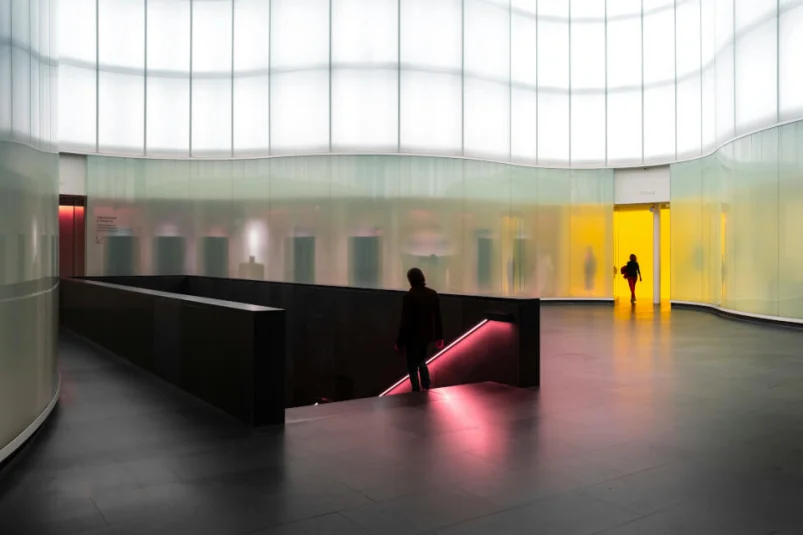Berlin's creative economy and the new wave of digital entertainment

Anyone who has walked through Berlin in recent years has noticed that something new is happening here. Between street art, flea markets, and late-night convenience stores, studios are springing up where virtual worlds are being built, festivals are combining livestreams with stage shows, and coworking spaces are where gamers share desks with AI developers.
Long known for its wild club scene and alternative art, the city has become a magnet for digital creatives. Gamers, developers, start-ups, and festival organizers use Berlin as a playground to test ideas that often remain on paper elsewhere. What makes it special is that technology, culture, and a certain Berlin lightheartedness merge here to create a unique style that attracts not only locals but also international talent.
A city reinvents its creative identity
After reunification, Berlin began to fill its gaps and open spaces – not with concrete, but with ideas. Abandoned factory buildings were turned into studios, music studios, and event locations. Initially, low rents attracted artists and unconventional thinkers from all over the world. Today, this has grown into a dense network of start-ups, artists, and tech pioneers.
The city's openness is more than just a cliché: projects that would fail due to formalities in other cities have a real chance here. Whether improvised pop-up exhibitions or international conferences, Berlin provides the stage. Even in the digital entertainment sector, it is clear how flexibly the city embraces new trends and embeds them in its creative landscape.
The rise of immersive entertainment spaces
It is no longer just clubs and bars that shape Berlin's nightlife culture. In recent years, a new form of experience has established itself: immersive entertainment, where technology and creativity go hand in hand.
Highlights include:
- VR arcades in Friedrichshain, where visitors can immerse themselves completely in virtual worlds
- Multimedia projections in the Light Art Space, which transform art into movement
- Interactive theater productions that seamlessly blend digital effects and live performance
Gaming has also reached a new level. In addition to the well-known indie events, there are now locations where classic games are reinterpreted with augmented reality, motion tracking, or gamification elements. Here, it's not just about playing; the audience becomes part of an interactive storyline.
Some of these experiences rely on short, intense sessions that act like a digital adrenaline rush, while others unfold an entire story over several hours. This diversity is what makes them so appealing: everyone can find the format that suits their mood, from a quick VR duel after work to an all-day mixed reality event.
Start-ups shaping digital culture
The Berlin start-up scene is a colorful mix of game developers, AI tinkerers, music tech pioneers, and creative minds who often combine several disciplines. This is where projects are created that are not only technically innovative but also culturally significant.
Examples from the capital:
- YAGER – a renowned studio that impresses internationally with complex multiplayer worlds and narrative depth
- Endel – an audio tech start-up that uses AI to develop personalized soundscapes for work, relaxation, or sleep
- Young development teams that combine gaming with art and social interaction, e.g., platforms for virtual concerts or adaptive game mechanics
These companies export not only their products, but also the Berlin spirit:
- bold in implementation
- unconventional in approach
- open to experimentation
This mix has made Berlin an important hub for the digital creative industry – a place where ideas can quickly move from concept to market-ready implementation.
Digital events and hybrid festivals with global appeal
Festivals such as re:publica and CTM Festival have demonstrated how Berlin functions as a laboratory for new event formats. Livestreams, virtual panels, interactive installations—everything is combined.
A good example is Berlin Games Week, which brings developers, publishers, start-ups, and gamers together around one table. Those who can't be there in person can join digitally. This creates an international network that extends far beyond the city.
Berlin's influence on streaming and content trends in Europe
TikTok clips, YouTube series, podcasts—Berlin is home to content that attracts clicks from all over Europe. Some creators combine entertainment with social issues, while others focus on pure creativity.
From influencers like Domitila Barros, who uses her reach for activism, to collectives that shoot experimental short films, Berlin offers the space to try out ideas that might be too risky elsewhere.
Berlin has always been a place for lateral thinkers. Open-source gaming projects, NFT art groups, or tech meetups in basements and backyards—it's all normal here.
The city also gives projects with uncertain outcomes a chance. This is exactly what attracts people who don't just want to consume digital entertainment, but want to shape it themselves.
Outlook: The future of the digital scene in Berlin
The next few years are likely to be exciting. AI-generated media, blockchain models for artists, and virtual worlds built by communities are no longer science fiction. Increasingly, these ideas are not only being tested in Berlin studios, but also transformed directly into market-ready projects.
Berlin has all the ingredients to play a leading role in this development: international talent, creative freedom, and a culture that celebrates change rather than fearing it. At the same time, the city remains deeply connected to its history—landmarks such as the Brandenburg Gate remind us that Berlin's identity consists of a unique blend of tradition and innovation.

Berlin Poche
Editorial Team
Always looking for new addresses, we like to share our discoveries and make you discover the best places in Berlin.